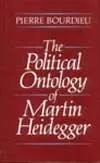
-
 Anglický jazyk
Anglický jazyk
Sophist
Autor: Plato
Sophist is a Platonic dialogue from the philosopher's late period, most likely written in 360 BC. In it the interlocutors, led by Eleatic Stranger employ the method of division in order to classify and define the sophist and describe his essential attributes... Viac o knihe
Na objednávku, dodanie 2-4 týždne
16.65 €
bežná cena: 18.50 €
O knihe
Sophist is a Platonic dialogue from the philosopher's late period, most likely written in 360 BC. In it the interlocutors, led by Eleatic Stranger employ the method of division in order to classify and define the sophist and describe his essential attributes and differentia vis a vis the philosopher and statesman. Like its sequel, the Statesman, the dialogue is unusual in that Socrates is present but plays only a minor role. Instead, the Eleatic Stranger takes the lead in the discussion. Because Socrates is silent, it is difficult to attribute the views put forward by the Eleatic Stranger to Plato, beyond the difficulty inherent in taking any character to be an author's "mouthpiece". The main objective of the dialogue is to identify what a sophist is and how a sophist differs from a philosopher and statesman. Because each seems distinguished by a particular form of knowledge, the dialogue continues some of the lines of inquiry pursued in the epistemological dialogue, Theaetetus, which is said to have taken place the day before. Because the Sophist treats these matters, it is often taken to shed light on Plato's Theory of Forms and is compared with the Parmenides, which criticized what is often taken to be the theory of forms. In Cratylus, contemporary or slightly preceding the Republic, Plato poses the problem, decisive for the use of dialectics for cognitive purposes, of the relationship between name and thing, between word and reality. Thus the 'Sophist' has its major background in the Cratylus. This dialogue is resolved in a contrast between the thesis of Hermogenes, who considers the name a simple sequence of sounds conventionally chosen to refer to an object, and the thesis of Cratylus, a pupil of the old Heraclitus, who supported the full expression of the essence of the "nominatum" in the name, and who considered the names as expressions forged by an Onomaturge, capable of expressing the essence of the thing named. Following this research, all the 'Sophist' is dedicated to find the right definition of the name "sophist".
- Vydavateľstvo: Binker North
- Rok vydania: 2023
- Formát: Paperback
- Rozmer: 229 x 152 mm
- Jazyk: Anglický jazyk
- ISBN: 9781774419946


 Ruský jazyk
Ruský jazyk 









